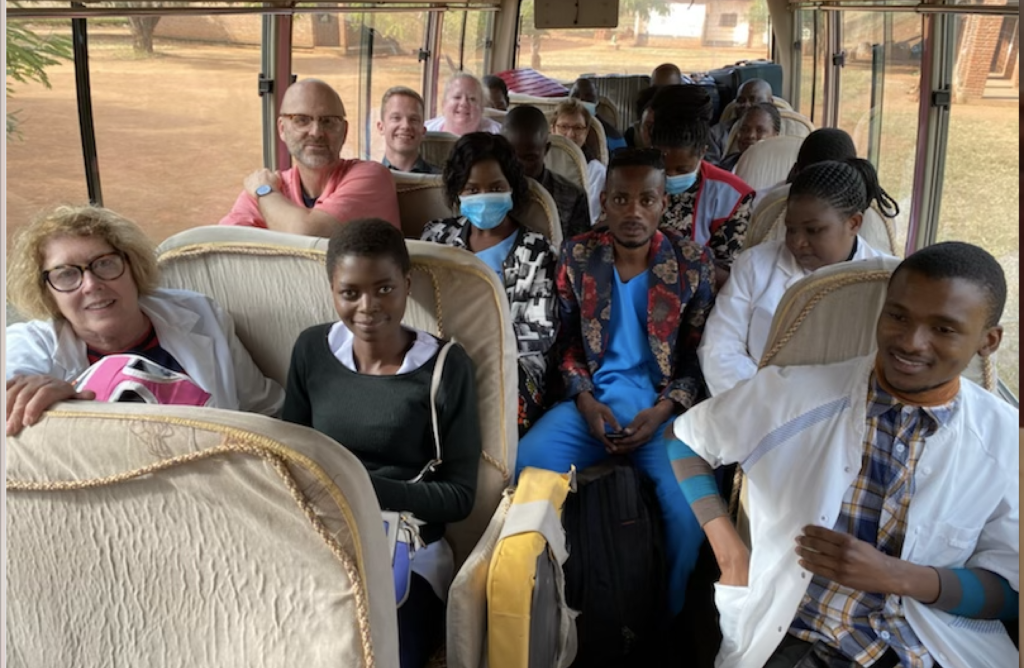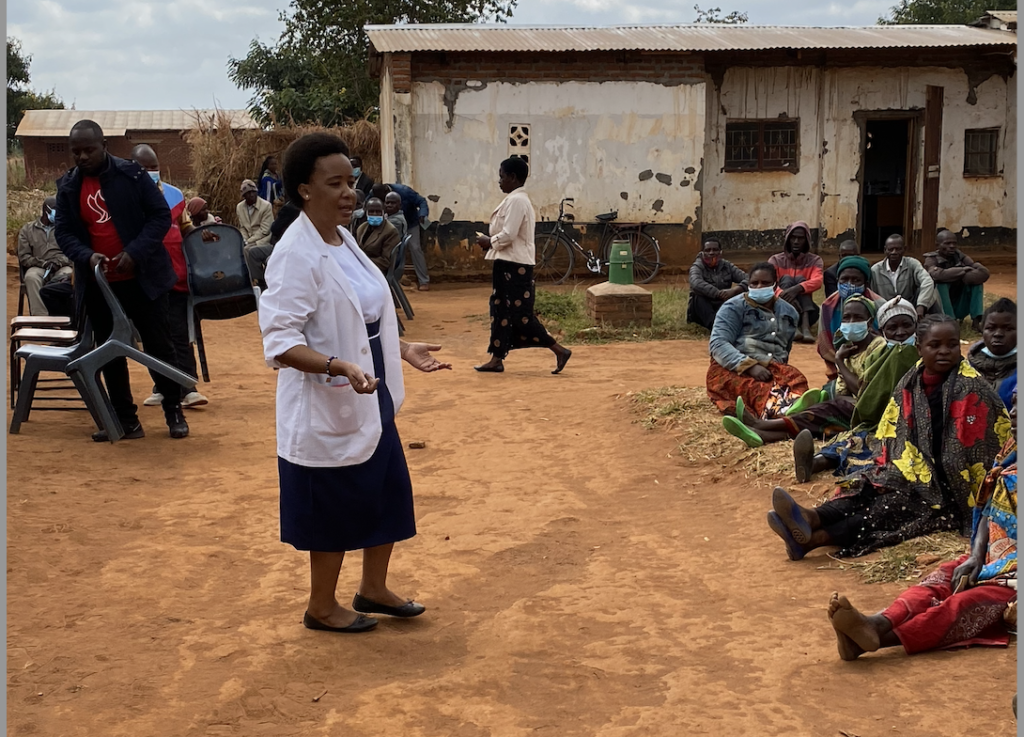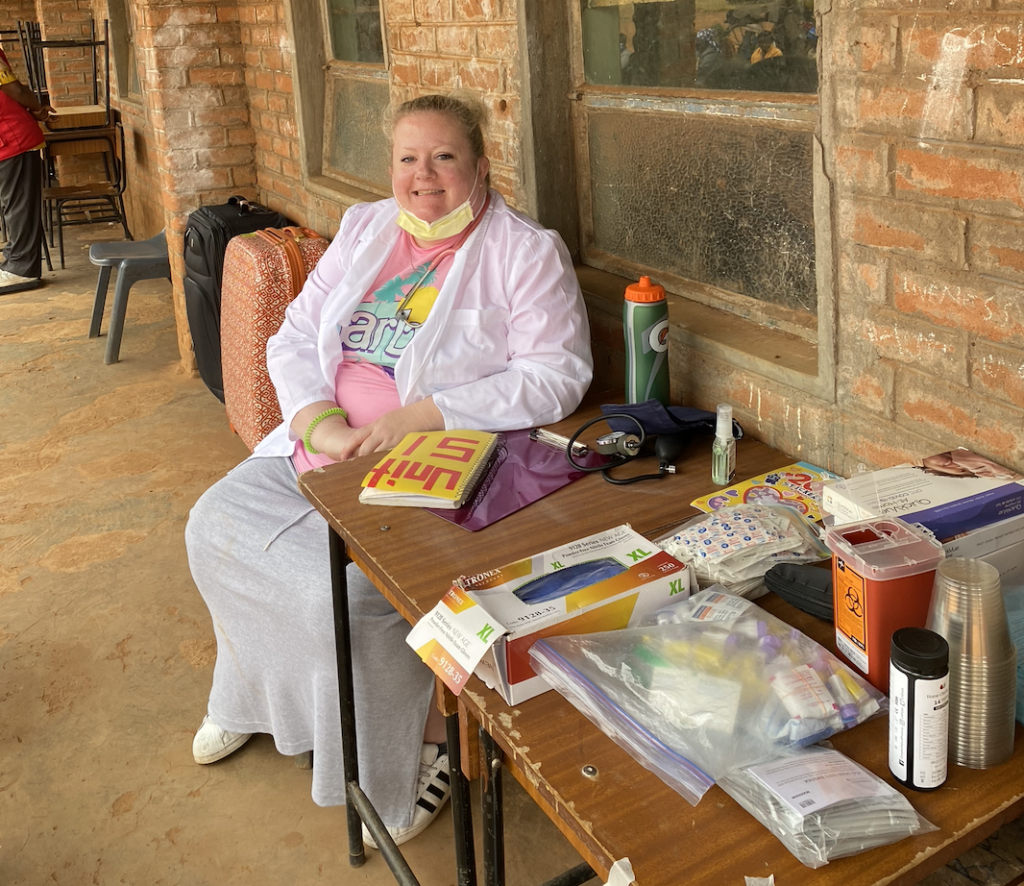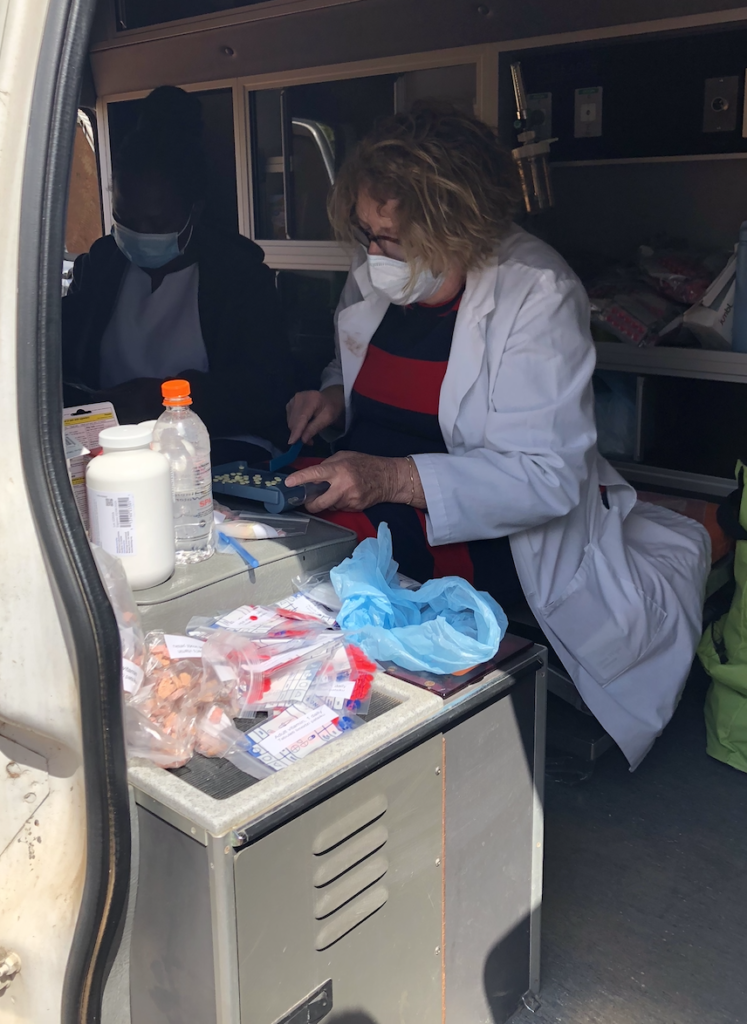It’s been a very busy 5 days of clinics. We treated over 100 patients per day and a variety of conditions ranging from malaria to coughs. Some shots, breathing treatments, stitches and a few referrals to specialists.
On Friday we delivered filled prescriptions to the church and then toured the Madisi Mission Hospital. A highlight was seeing some newborns.Then off to see ZOE. It was a joy seeing recent graduates that have successful businesses. We were also able to see a first year group. They entertained us with singing, dancing and a poem. They have been learning about health and hygiene, child rights, and busines planning.
Saturday morning we loaded up the pink bus and headed to Lake Malawi. First stop Kuti Wildlife Reserve. Sadly, it was in the heat of the day and only saw a few animals; giraffe, zebras, and monkey. But it was an adventure! We are now enjoying the beautiful lake and relaxing. Lake Malawi is the 3rd largest lake in Malawi, bordering Malawi, Mozambique and Tanzania. Tomorrow after some relaxing and exploring we head back to Lilongwe for our last night in Malawi. We head head on Monday with full hearts, wonderful memories and new friends. Until next year.
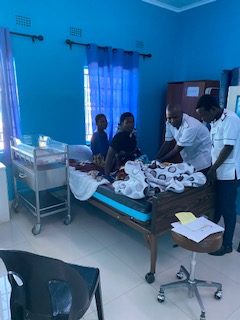
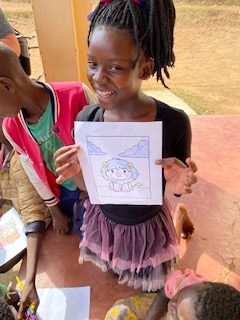
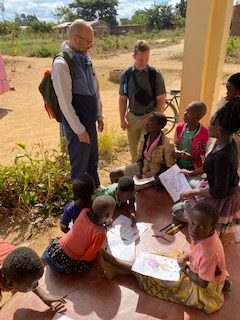
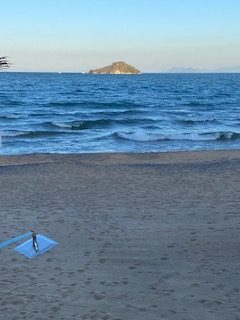
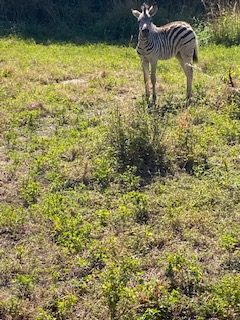
Call to Action:
When a disaster strikes, do you want to help? If you live in the Kansas City area, you can sign up to be Early Response trained or attend a Chainsaw training but the first step is to become Safe Gatherings certified. Visit the disaster response page to learn more! If you live outside of the KC area, consider engaging in disaster response organizations in your area. For instance you can become CERT (Community Emergency Response Team) trained by your local fire department so that you can help professionals respond to a disaster in your own community. Visit the FEMA CERT website to learn more!
BIG IDEA:
Relief is the response everyone immediately thinks of after a disaster strikes. With that said, it's only one of five stages in a response -one that we often get stuck in - which can cause a whole host of other problems.
A few key takeaways from our guests:
Acronyms, Definitions, and Rules... Oh My!
Meet the Voices
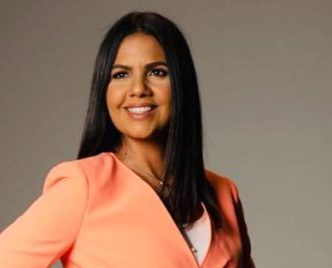
Dr Glorymar Rivera Báez works for ReHace, the social outreach division of the Methodist Church of Puerto Rico. ReHace stands for Rehaciendo Comunidades con Esperanza which in English means "Building Communities with Hope".
When Hurricane Maria struck the entire island of Puerto Rico, Glorymar played an important role in mobilizing local volunteers as well as groups of people coming from the contiguous United States. Glorymar has a passion to help people not only in the relief phase, but to holistically move them from relief into recovery through access to employment, mental & emotional support all while helping them build their capacity.
As always, thanks for listening!
Love, The Podsquad
The last few days have been very hectic. We leave at 8am to try and have the clinic up and running by 9am. I say "try" because it hasn't happened yet! That's the flexibility part of the trip ;). With that said, this has allowed us time to talk to the Malawians who are a part of our team. I think that has been one of the best things!
We have seen and treated over 325 patients in our 3 days of clinics. There have been a lot of children under age 5. This means there have been a lot of bubbles, songs, coloring sheets, and peek-a-boo. Babies don't like peek-a-boo in Malawi, lesson learned!
Our evenings can be long. We pack pills, have dinner, then devotions. The dinner often takes a long time - we've learned to pre-order! I'm writing this on the bus - it is Wednesday - and we are on our way to Wandikweza, a clinic that Resurrection has partnered with. I can't wait to see it!
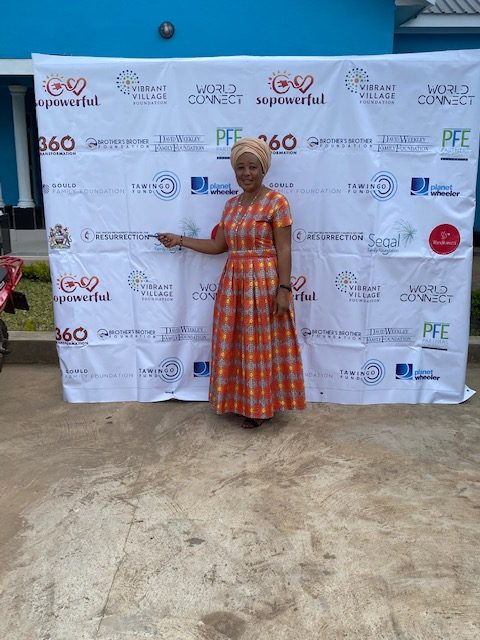
During the day, the medical team has been going into rural villages identified by Mercy & her clinic, Wandikweza. They utilize churches, the outdoors, and an ambulance to see patients and distribute medications through their mobile pharmacy. In the evening, they fellowship while organizing medication for the following day's clinic. Any patients needing follow up will be done by Mercy and her team. They were able to visit one of the boreholes funded by Resurrection donors as it was near a village they were serving in. It's great to see Malawian and US medical professionals working side-by-side to serve people in rural villages that have little-to-no access to medical care!
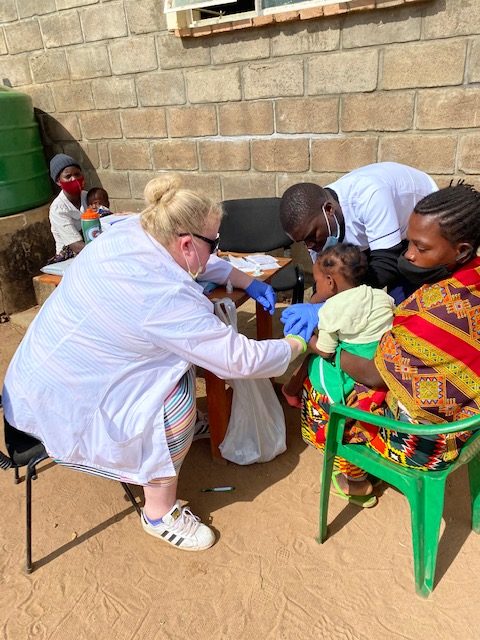
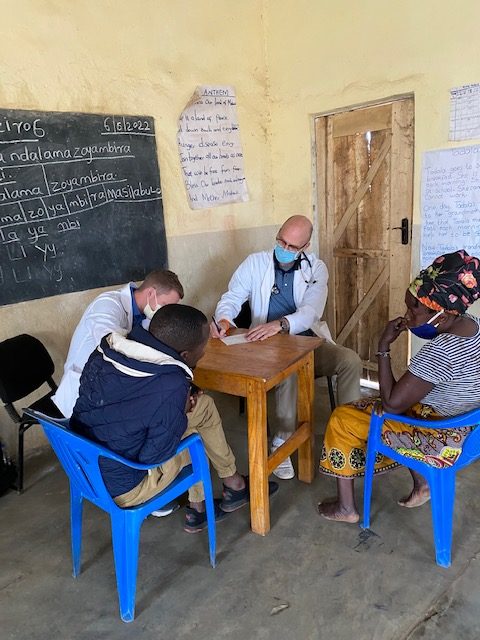
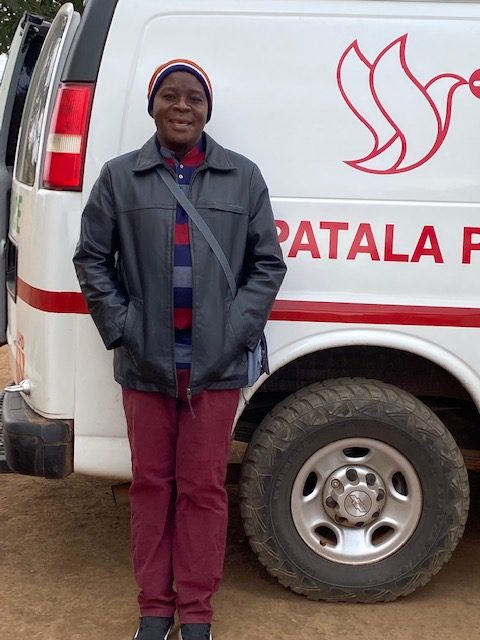
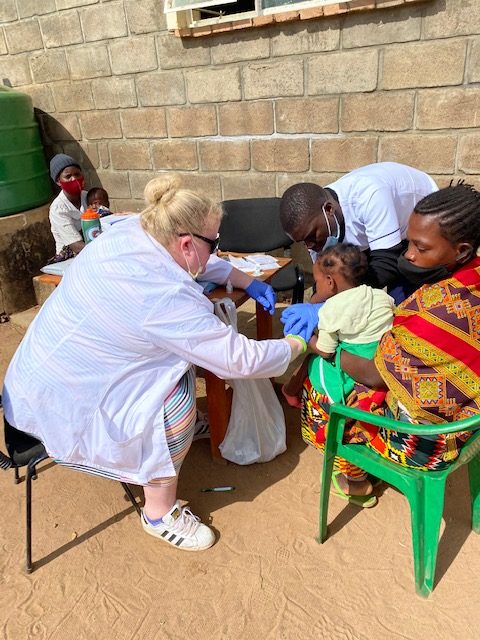

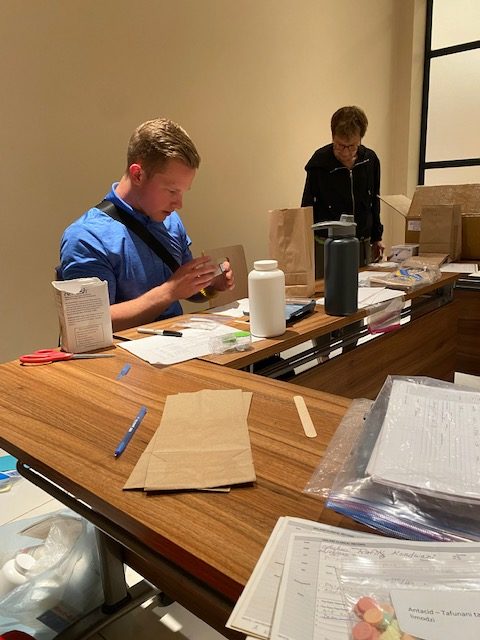
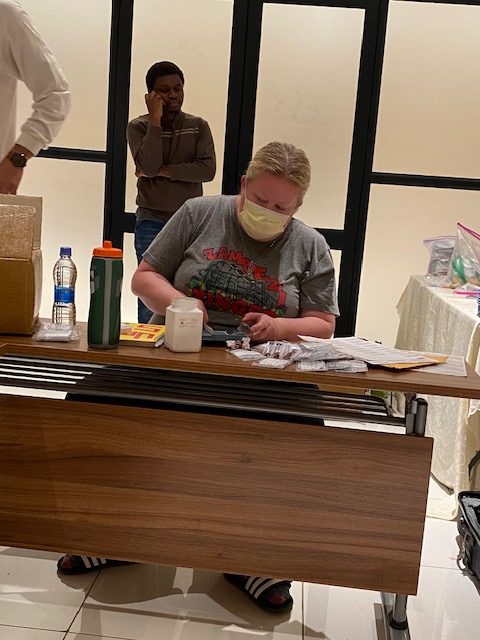
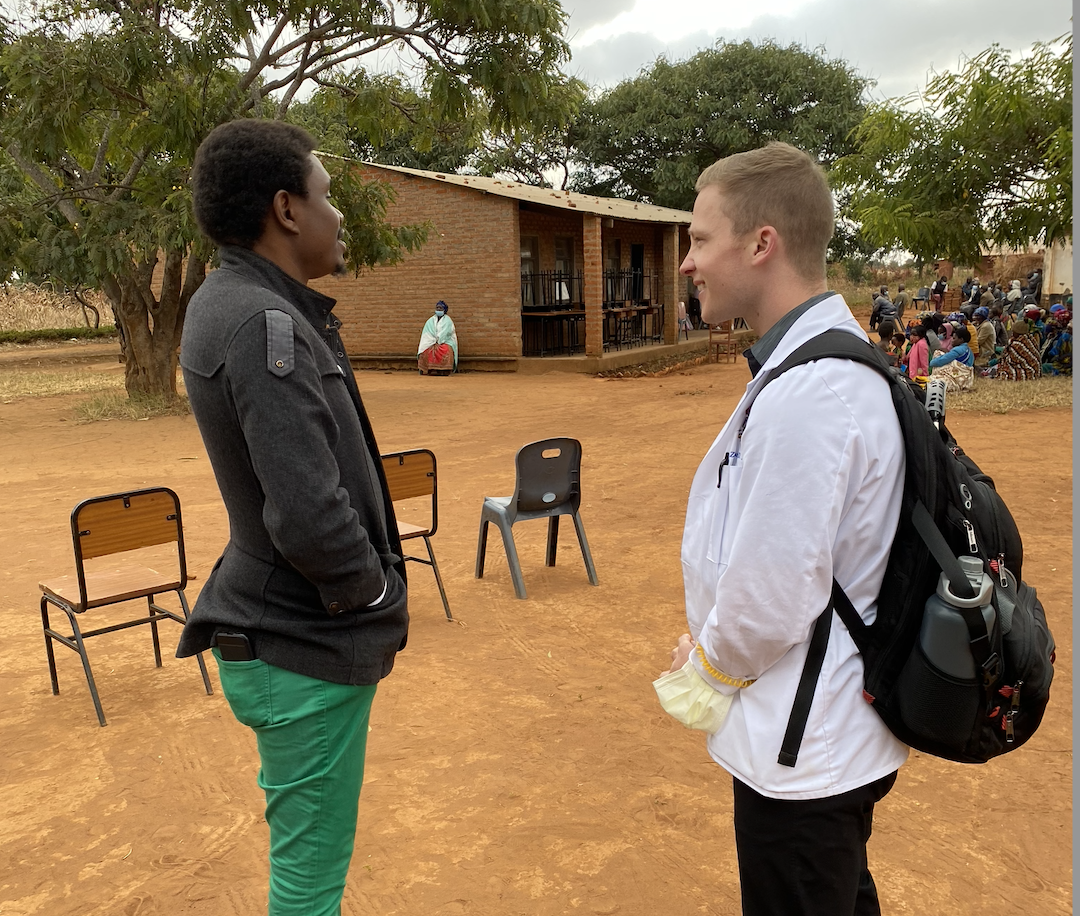
It's so wonderful to be back in the Warm Heart of Africa after 2 years (thanks COVID). After a good night's rest, we attended church in Madisi on Sunday morning. The singing and dancing brought such joy to everyone. God was surely in that place.
After church, the team held a medical clinic seeing about 80 people. It was a little overwhelming as we had anticipated 50 people, but the team worked together and everyone was seen.
Monday took us out to a village to hold a clinic along with Malawian medical personnel. Information was shared and new friends were made. We are looking forward to another rural clinic on Tuesday!
